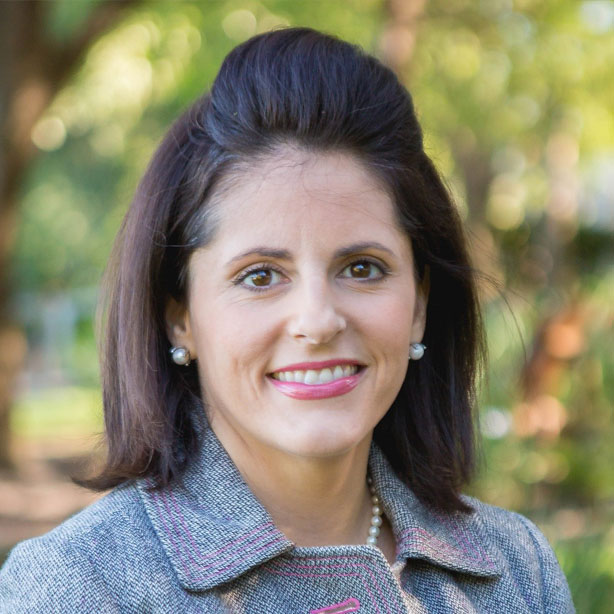The Orlando Law Group
Orlando trust attorney
When developing your estate plan, you want to take advantage of the widest array of financial instruments to protect your assets. A will explains your final wishes regarding burial and property distribution, but it leaves those assets open to excessive tax burdens. Using a trust in tandem with a will allows you greater control and increased benefits for your heirs.
Speaking with an Orlando trust attorney can clarify how trusts work and which one is right for you. It is never too early to begin planning for the future and those who will inherit from you. Contact The Orlando Law Group today and schedule a meeting with an Orlando estate planning lawyer today.
Breaking it down: What exactly is a trust?
Trusts are legal documents that comprehensively describe how you wish your assets to be managed after you pass away. They also have benefits while you are alive by reducing your taxable income and protecting your assets from creditors.
A trust involves three roles: the grantor, the trustee, and the beneficiaries.
Grantor
The person who creates and funds the trust.
Trustee
The person appointed by the grantor to manage the trust.
Beneficiaries
The individuals or entities that receive distributions of trust assets.
To create a trust, you will work with an Orlando trust administration attorney to write down the terms of the trust, assign trustees and beneficiaries, and fund the trust. A trust is more complicated than a will because it becomes its own entity that distributes monies and properties in accordance with the terms well beyond the end of its creator’s life.
What can trusts be used to plan for?
Trusts help avoid tax burdens, but they also help settle estates when the beneficiaries may be prone to disagreement. Once an estate goes into probate, the process can last for years if any heirs contest the contents of the will. Trusts are signed by all parties who will benefit, so they are fully aware of and agree to the terms when they sign.
Trusts can move the settlement process faster than waiting for probate to finish, which can be as long as one year in some states. They can protect younger beneficiaries from impulsive decisions by meting out distributions as they age instead of all at once. Our trust formation attorneys in Orlando, FL can explain your options.
Death
A trust can be used to manage and distribute your assets after your death, allowing your heirs to avoid the timely and expensive probate process. Properties and finances can be protected from creditors to avoid draining the estate. It also prevents family members from squandering their inheritance.
Long-term care
A trust can be used to pay out for long-term care, which typically becomes a concern at the end of your life. Many nursing facilities require that you sign over control of your assets to guarantee your monthly fees will be paid. A trust protects them from being used this way while funding the care you need.
Potential mental disability or incapacitation
Trusts allow your assets to be maintained and protected if you become mentally or physically incapacitated. For example, if you are severely injured in a car accident, a trust remains functional until you awake or pass away. It can also provide management for your assets in the event you suffer cognitive degeneration from dementia, Alzheimer’s, or some other condition.
Who can benefit the most from a trust?
Trusts are meant to shield your assets from those who might use them in a manner not in keeping with your wishes. They can benefit many parties, depending on how you word the document.
Surviving spouse
When a trust is in place, your surviving spouse will not risk challenges to the will or face the frustrations of probate. They can take over control of the trust and everything in it, continuing their life as they mourn your loss. If there are any disputes from other heirs, a trust litigation attorney in Orlando from our firm can help.
Non-marital life partner
If you and your partner are in a committed relationship without the legal protections of marriage, a trust can ensure your partner has access to the properties you have shared. Your trust attorney in Orlando, FL, will use their experience to advise you on how to proceed.
Children with disabilities
Parents who have children with special needs worry about who will care for their offspring when they die. Creating an irrevocable special needs trust can provide support and resources to pay for expenses such as education, housing, legal fees, and medical care. A special needs trust attorney in Orlando will have experience in creating these documents.
Future generations
Special kinds of trusts can ensure that your family wealth is successfully passed onto future generations without incurring taxes related to its transfer. These can include gift, estate, or generation-skipping taxes.
What types of trusts are available in Florida?
In Florida, you can set up trusts for many different needs. Some of the most common are discussed below.
Bypass trust
A bypass trust is frequently used in conjunction with another marital trust to set aside money in case of an emergency. This covers one spouse’s care and financial needs if the other is catastrophically injured or otherwise unable to earn a living.
Charitable trust
Charitable trusts are private foundations that provide funding for a charity of the grantor’s choosing.
Charitable lead trust
A charitable lead trust provides funding to one or more charities for a designated period, after which the remaining assets are distributed to other beneficiaries.
Charitable remainder trust
Another kind of philanthropic trust is a charitable remainder trust. This type of trust allows you to transfer assets to your choice of charity, providing it with a reliable income stream.
Discretionary trust
Discretionary trusts are irrevocable and allow the trustee full control over how much is distributed to beneficiaries and when.
Generation-skipping trust
This arrangement is created to allow the grantor to skip their own children and leave assets to the next generation. Beneficiaries of generation-skipping trusts must be at least 37.5 years younger than the grantor.
Grantor retained annuity trust (GRAT)
This form of irrevocable trust uses annuity payments as the method of asset transfer to beneficiaries. In a grantor-retained annuity trust, the grantor retains control and interest in the properties and avoids substantial tax burdens.
Irrevocable life insurance trust (ILIT)
An irrevocable life insurance trust allows the grantor to name the trust as the asset owner and beneficiary. Relatives are typically named as trustees, holding insurance policies and paying the premiums with funds from the grantor. This shields your life insurance policy payouts to your heirs from the IRS.
Marital trust
Marital trusts are used when one or both spouses have children from previous marriages. These trusts ensure that all the assets each parent wishes their respective children to inherit will go to those children without falling subject to state division laws when the parent dies. This is especially important if the surviving spouse remarries.
Spendthrift trust
The State of Florida recognizes a spendthrift provision for trusts, a prevention measure that bars access to creditors before the beneficiaries receive their distribution. This provision also prevents beneficiaries from receiving their full distribution except as outlined by the grantor’s wishes.
Testamentary trust
Testamentary trusts are prepared while the grantor is living but are not legally created until the grantor’s death. It works in conjunction with a will to protect the estate’s assets and distribute them without the trouble of going through probate.
Trusts vs. wills
Although both trusts and wills manage the transfer of assets from the grantor to beneficiaries, they work in different ways. A will describes your final wishes about property distribution, funeral arrangements, burial details, and care for pets or children.
Trusts are focused on protecting assets from tax and other burdens. Anything placed in the trust is protected from the probate process. A skilled trust lawyer in Orlando, FL can help you understand the differences and how each may benefit your needs.
Benefits of a trust
A trust provides five main benefits:
- Helps your family avoid the probate process
- Protects your beneficiaries from excessive taxes
- Allows you to specify the parameters for using your assets
- Provides assistance during disability or sickness (revocable trusts)
- Provides flexibility for managing your estate
When should I create a trust? How do I know I need one?
You should create a trust when you have properties or financial instruments that you have specific wishes for, and you want to guarantee they are distributed as you desire. Ultimately, determining whether you need a trust requires advice from a skilled estate planning attorney in Florida.
What is a trustee and what do they do?
A trustee is the custodian of the assets held within a trust. They manage and administer the assets according to the terms set by the grantor. Most trusts name at least one successor in the event of the original trustee’s death.
Responsibilities and fiduciary duty
Trustee responsibilities include recording transactions, filing taxes, and distributing funds or properties to beneficiaries. The trustee’s fiduciary duty means they are held to a high standard to protect the trust’s investments and distribution.
Trustees must make decisions with the trust’s best interests in mind, such as investment choices that will pay dependable dividends rather than put the assets at risk of devaluation.
Personal liability
Trustees can be held personally liable if they fail to perform their duties in good faith with the terms of the trust and its best interests.
Prudent Investor Act
The Uniform Prudent Investor Act (UPIA) describes the duties of a trustee for managing risk and return, general economic concerns, tax implications, and the beneficiaries’ needs. The specifics of this act can be confusing to the average person, but a skilled Orlando trust attorney can interpret it and lend advice.
How should I choose a trustee?
You may choose anyone over the age of 18. They should be dependable and reliable. Common choices include the following.
Family or friends
Someone who is close will understand your wishes and family dynamics better, but this choice risks internal disputes. Speak with them to confirm they are ready for this responsibility.
Attorney
Choosing a lawyer removes the risk of family turmoil and provides an impartial influence. The trust must pay for this service, which could reduce distribution funds.
Trust company
Paying for a professional service avoids family fights and ensures the trust’s interests will be safeguarded for many years.
Your Orlando trust lawyer can discuss these options with you to determine which is best.
What happens after the trust is created?
The trustee will manage the assets in accordance with the terms. Once they pass away, the duties will move to their successor. Depending on the type of trust, you will reap the benefits and distribute the assets in the best interests of the trust.
Schedule a call with a top-rated Orlando trust attorney today
Protect your legacy by investing the time to speak with a highly skilled and experienced Orlando trust attorney from The Orlando Law Group. Do not leave things to chance or risk your heir’s future by allowing the state probate court or IRS to get involved in your affairs.
Use our convenient online form or call us at (407) 512-4394 to schedule a consultation today.
Related articles for further reading
Discuss your case with us
or call us
(407) 512-4394





 Jeffrey W. Smith
Attorney
Jeffrey W. Smith
Attorney

 Dan Sanders
Attorney
Dan Sanders
Attorney
 Wendy Hernandez O’Donnell
Attorney
Wendy Hernandez O’Donnell
Attorney









